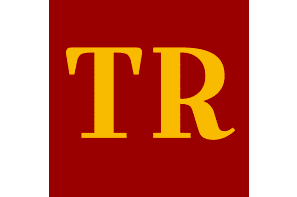When Marshall Amaya and Jonathan Laifman took the course “Fundamentals of the U.S. Legal System” together last year, the classmates’ interest in the law field amid a lack of available resources inspired them to create their own undergraduate law review journal. Designed to allow for critical analysis of legal topics, Trojan Review will launch within the next two semesters and provide opportunities for students interested in the legal field.
Amaya, a junior majoring in economics, said that he and Laifman found their class with professor Donald Scotten to be “engaging and very inspiring.” Both he and Laifman, a senior majoring in physics, also noticed how other students in their class had an interest in law and discovered that further guidance or resources could lead them to develop great argumentation and research in the field.
“Jonathan and I both realized that there wasn’t exactly a publication on campus that really helps guide undergraduates to start developing legal research to understand the nuances of legal writing,” Amaya said. “We wanted to provide a pre-law organization that helped make law school accessible.”
Amaya first approached Scotten with the idea to start an undergraduate law journal in Fall 2020, and later teamed up with Laifman to begin planning in Spring 2021. Scotten, the vice dean for administration of the Gould School of Law and faculty advisor for the Trojan Review, served as a “helpful guide and established the direction of the law review,” Amaya said.
“[Amaya and Laifman] came to me with the idea,” Scotten said. “I told them that my job is to assist them and support them, and provide help where they need it … I really wanted it to be their organization in terms of how it was created and restructured and run, because it was their brainchild.”
Along with Scotten, Amaya and Laifman created a one-unit course offered through the Gould School of Law this semester temporarily named “LAW 490: Directed Research,” in which students will contribute to the Trojan Review and be encouraged to be well-versed in legal writing. In the future, Amaya said the course will likely change its name to “LAW 490: Trojan Review.”
“By the end of the course, they’ll be asked to start brainstorming their own ideas of perhaps a topic that they’d like to explore, that they’re intellectually curious about,” Amaya said. “Further down the line, they can start doing the research and writing and drafting and hopefully be published down the line in the Trojan Review.”
At the moment, Trojan Review does not have an official executive board, and intends to adapt its structure once there is a growth in membership. Excluding Amaya and Laifman, the review has at least 21 members.
Amaya said that the journal will allow students to analyze certain cases or a specific legal issue in the essays they publish. However, the journal currently has no definite limits on the subject matter it will publish.
“I’m not sure if it’s possible to say what will be included and what won’t be just because we don’t know if each issue will have a theme to it or a topic to it,” Amaya said. “They will consist of articles that pertain to the law in one way or another.”
While in the future they intend to narrow down the ideas and topics covered in the Trojan Review, Laifman said that the journal intends to feature publications from students, professors and law professionals. Besides publishing online, Trojan Review may also begin a podcast where law students, law firm officials, clerks, and judges would have the opportunity to discuss different legal issues or their professions.
Scotten said that the presence of Trojan Review fills a gap at the University and expands into students’ other fields of study.
“[The Trojan Review] fills a space where it allows undergraduate students to write in the field of law, but not really law as an independent discipline, but law as an interdisciplinary study where they bring in their knowledge from other areas,” Scotten said. “Long story short, it gives undergraduate students an opportunity to really do research, not only in their field, but to expand in their field to really see what interfaces intersect with their studies.”
One of the primary demographics of the law review is undergraduate students looking for an outlet to demonstrate their research and explore their interest in the law field. Laifman considers the law review as a staple of any law school throughout the nation.
“The real mission, though, comes down to [recognizing that] there is a gap in the USC community, and that people who are interested in law had very few avenues to go down,” Laifman said. “There was a pre-law fraternity, there was a mock trial and now the [moot] court, but in terms of academic work, there wasn’t any real guidance.”
The status of the Trojan Review remains in its early stages with no official staff being designated as of yet. As with other organizations, Trojan Review must be approved and recognized by the Undergraduate Student Government before its official launch.
Students interested in joining Trojan Review can contact Amaya or Laifman directly, or fill out the interest form located on the journal’s official website.
“I think the one thing is to underline how unique it is to have an undergraduate law review,” Laifman said. “There are colleges around that have it, but for how central it is to the law school experience and how ubiquitous it is throughout all law schools … this is really something that would be great for USC students, because it’s going to be an amazing opportunity to prepare them for law school.”
Source: https://dailytrojan.com/2021/09/28/students-create-undergraduate-law-journal/




